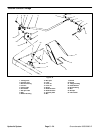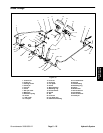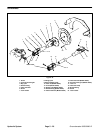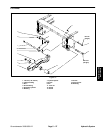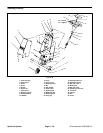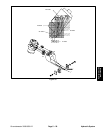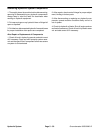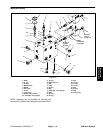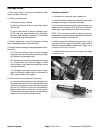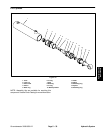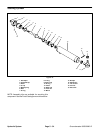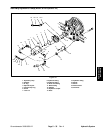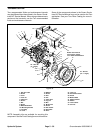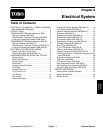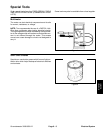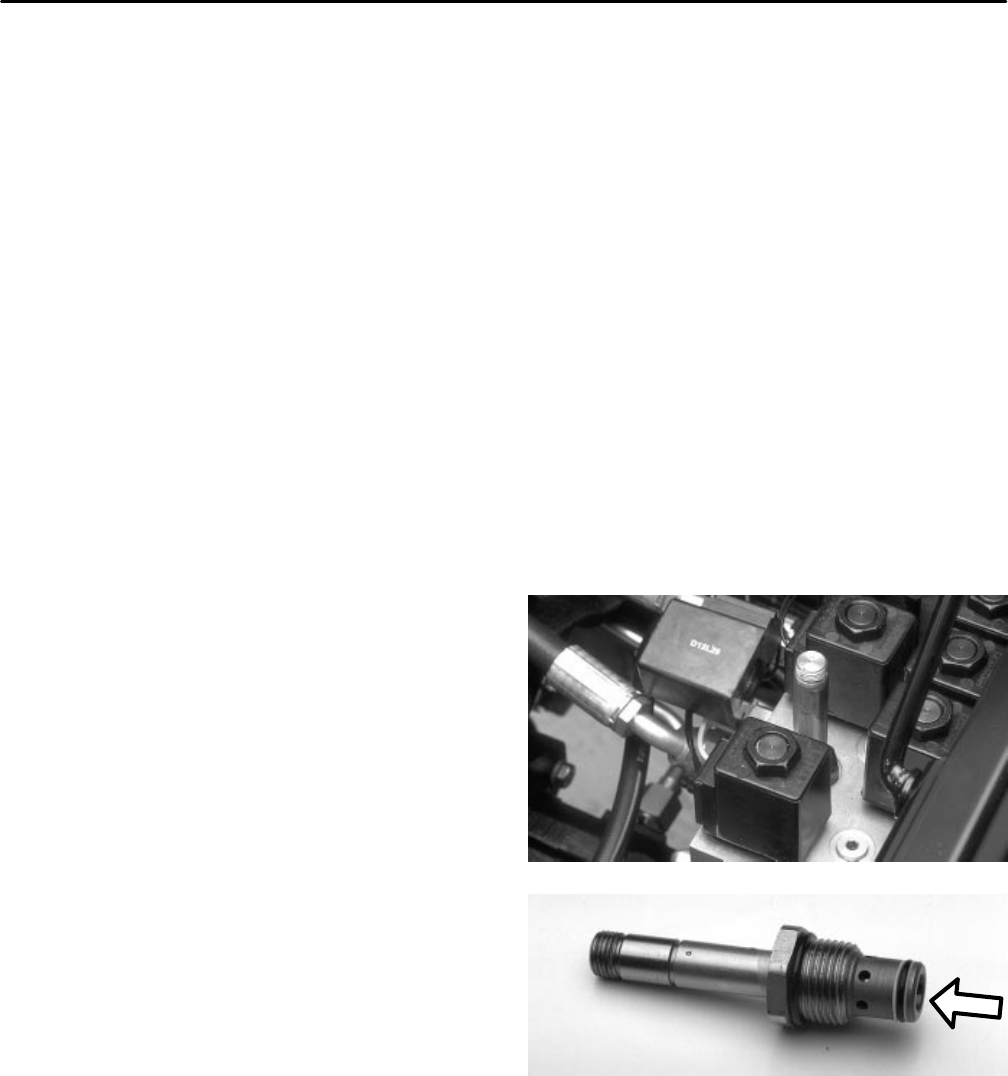
Cartridge Valves
1. Clean valve block to prevent contamination when
valve cartridge is removed.
2. Remove cartridge valve:
A. Remove nut from solenoid.
B. Remove solenoid coil and o–ring at each end of
solenoid coil.
C. Use a deep socket to remove cartridge valve.
NOTE: Use care when handling valve cartridges,
because slight bending or distortion of stem tube
can cause binding and malfunction.
3. Visually inspect port in block for damage to sealing
areas, damaged threads or contamination.
4. Visually inspect cartridge for damaged seals and con-
tamination.
A. O–rings and backup rings must be arranged
properly on the valve for proper operation and seal-
ing. Replace any damaged seals.
B. Contamination may cause valves to stick or hang
up. Contamination can become lodged in small
valve orifices or seal areas on poppet type valves
causing malfunction.
C. If cartridge valve seals appear pitted or dam-
aged, the hydraulic system may be overheating or
there may be water in the system.
5. Clean and check for proper valve operation:
A. Use clean mineral spirits to clean cartridge valve.
Submerge the valve in clean mineral spirits and use
a brass or plastic probe to push the internal spool in
and out 20 to 30 times to flush out contamination.
Mineral spirits does not affect the o–ring material.
Particles as fine as talcum powder can affect the op-
eration of high pressure hydraulic valves.
Cartridge Installation
1. Lubricate all o–rings with clean hydraulic oil.
2. Carefully thread cartridge into the port by hand. Valve
cartridge should go in easily without binding.
3. Use a torque wrench and deep socket to tighten car-
tridge valves to a torque of 35 ft–lb (5 Kgm). Excessive
torque may cause the spool to bind and malfunction.
NOTE: Use care when handling solenoid valve car-
tridges because slight bending or distortion of stem tube
can cause binding and malfunction.
4. Install solenoid coil. Make sure there is an o–ring at
each end of the coil. Apply “Loctite 242” or equivalent to
threads of stem tube before installing nut. Tighten nut to
a torque of 15 in–lb (17 Kg–cm).
5. If problem still exists, remove valve and clean again
or replace valve.
Figure 41
Hydraulic System
Page 5 – 32 Rev. A
Groundsmaster 3000/3000–D



